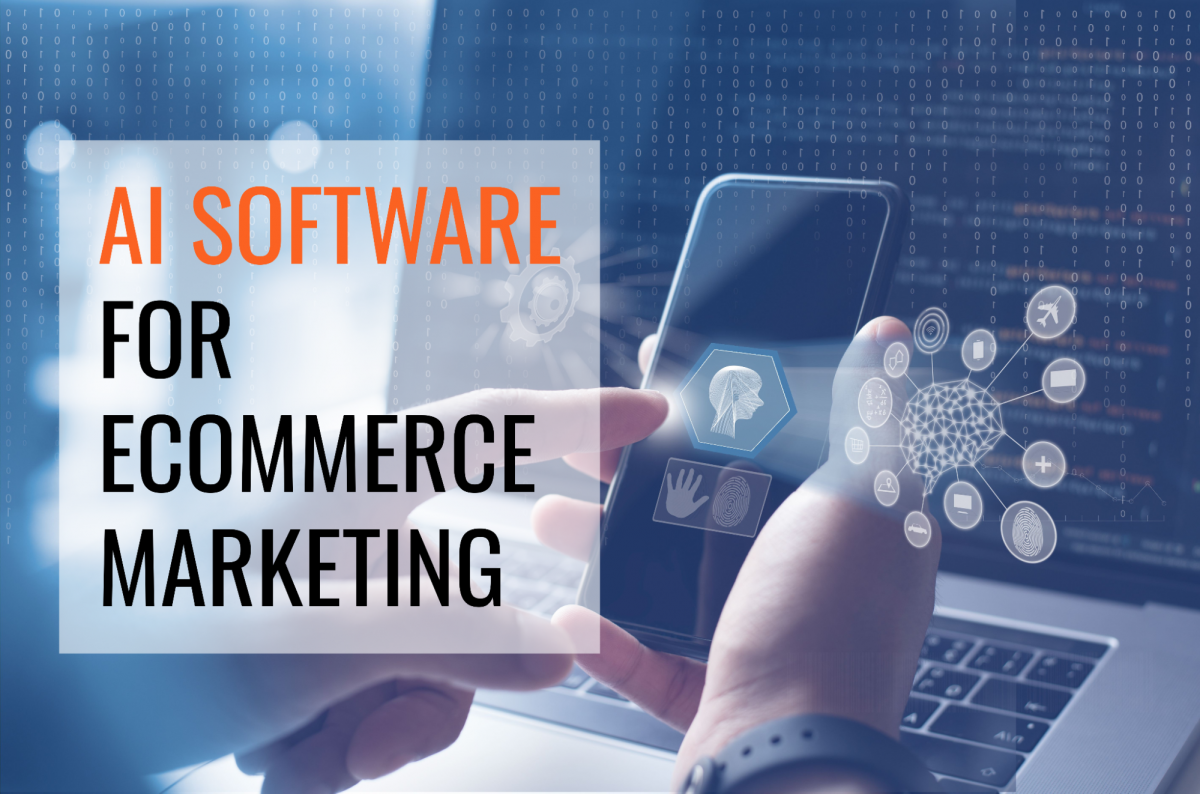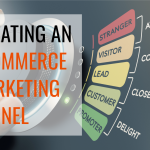Artificial intelligence (AI) is a hot topic these days. We’re already seeing more applications such as AI art, self-driving cars, and social bots or chatbots capable of “humanized” and engaging conversations (we’re talking about you, ChatGPT!)
Like every revolutionary technology, it comes with its downsides and risks as well. But we can’t deny the fact that AI will be a big part of our lives and business and this is one area where it’s predicted to drive a great deal of change.
Today, most online business owners already use data-driven apps with artificial intelligence software. This includes CRM tools, automated newsletters, and customer service bots. But that is just the tip of the iceberg. With the lightning-fast development of AI products, a new era of business intelligence is coming.
Ecommerce entrepreneurs can expect better, more cost-efficient ways to attract customers, drive revenue, scale the business, and save time as they step away from tedious tasks in their business processes.
In this article, let’s look at how artificial intelligence works in ecommerce. I’ll also share some of the best artificial intelligence tools that you should consider for your ecommerce business. Let’s dive in.
Artificial Intelligence and Ecommerce Marketing
Strategic business and technology advisor Bernard Marr defines artificial intelligence as, “machines that have the capability to think and communicate like us and turn their hands to just about any task.” Artificial intelligence uses various data patterns to perform tasks that mimic human behavior and human intelligence.
AI’s important features include speech recognition, machine learning, virtual assistance, and many more. The Harvard Business Review identifies two types of intelligence:
Task Automation: This involves apps that perform repetitive, structured tasks and require low levels of intelligence. It’s unable to handle complex tasks or nuanced problems like identifying customer intent, giving personalized responses, or learning from past interactions.
Machine Learning: Algorithms are trained using huge quantities of data to make relatively complex decisions and predictions. It recognizes images, text, customer segments, and customer behavior. We can see this being used today in digital advertising and CRM systems. Machine learning, along with its more sophisticated variant deep learning, uses artificial neural networks that simulate the human brain.
One of the top advantages of AI is its ability to vastly improve the buyer’s journey thanks to hyper-personalized content and offers. According to McKinsey, companies that get their personalization strategy right have the potential to generate 40% more revenue. Personalized offers work because customers are shown relevant messaging and products that they actually want to buy, at the right time.
For entrepreneurs, AI will be able to assist with doing repetitive or difficult tasks at scale. Just imagine all the extra time you will free up for brainstorming marketing campaigns or business development.
Customer service and communication are business processes you want to stay on top of if you want to attract and keep loyal customers. New AI technologies now allow humanized bot conversations where customers feel really seen and heard. They won’t be just for answering common queries. By 2025, the value of ecommerce transactions facilitated through chatbots will be valued at $145 billion, according to Juniper Research.
Best Artificial Intelligence Software for Ecommerce Marketing and Sales
Business intelligence software can do the heavy lifting while you focus on strategies that drive your business forward. Here are some of the best artificial intelligence software and apps for businesses today:
1. Active Campaign
Active Campaign helps businesses grow through customer experience automation. It lets you automate digital marketing tasks like email marketing and segmentation, abandoned cart recovery, website tracking, and lead scoring.
Active Campaign’s automation-first approach uses rich customer data from every touchpoint to improve targeting. It also allows you to simplify customer communication across different channels, with integrations for email, text, and social media. Other artificial intelligence features include predictive sending, dynamic content, and predictive content.
2. Salesforce
Salesforce is a cloud-based CRM analytics platform that allows you and your team members to access customer data from anywhere. The Salesforce platform uses AI-powered innovations that allow businesses to humanize and personalize every interaction. It delivers predictions, insights, and recommendations.
The system also allows customer-facing team members to collaborate and act on AI-sourced predictions, so it’s not just the machines working. Another AI feature is Revenue Intelligence, which provides sales forecasts and insights on your best-converting offers and campaigns.
3. Omnisend
Omnisend is a tool that will help ease the workload of customer communications. Omnisend has integrated email and SMS campaigns that are easy to set up and launch. Email marketing is important; but segmented campaigns do even better, with a 62.2% higher order rate versus non-segmented ones.
Omnisend offers AI-powered segmentation that classes audiences based on shopping behavior, campaign activity, and other parameters. You can also identify customer lifestyles from their first contact with your brand, first purchase, repeat purchases, and referrals. This means no matter where your customer is in the cycle, they’ll get messages that resonate with them.
Get our AI Software for Ecommerce - Worksheet delivered right to your inbox.
4. Granify
Granify is a conversion optimization tool powered by machine learning. It uses complex accumulated intelligence to leverage shopping experiences. The “Granify Brain” has optimized over billions of sessions and can identify and target users based on their intent and preferences. That could be hunting for better deals, buying a popular item before it’s gone, or looking for recommendations. It also helps boost revenue with cart abandonment features and sales funnel optimization.
5. Attraqt
Attraqt is an AI-powered search optimization tool that lets you deliver accurate and fast search results for your shoppers no matter what device they’re using. Attraqt has over 20 years of retail experience and their pre-trained algorithms are proven to improve your time to market and product discovery goals.
Another great feature is AI-assisted merchandising which lets you showcase the extent of your catalog, as well as promote or hide items based on local preferences and availability. It also has an analytics dashboard where you can easily see conversion rates, average order value, and customer loyalty metrics.
6. ViSenze
ViSenze is a product discovery tool that provides smart recommendations based on what shoppers are looking at. Important features include Smart Search by Image, which lets users upload an image to search for an item, and Smart Tagging which optimizes product tags and entire product catalogs at scale. ViSenze shortens conversion paths and ensures that users find the desired product.
7. Adzooma
Adzooma is an all-in-one digital marketing platform that allows you to manage listings, reviews, SEO, reviews, and marketing campaigns in one place. Their paid ads automation tool lets you run pro advertising campaigns in just a few minutes. The tool also boosts search visibility and gets your products found wherever customers search. From a single dashboard, you can publish, manage, and track all your business information across 50 platforms.
8. Ocoya
Ocoya is an AI content automation tool that helps you create, schedule, analyze, and auto-generate content. Content is key if you want to grow a loyal customer base and attract leads. With Ocoya, you can get your content marketing, social media, and copywriting done in minutes.
Their AI writing assistant Travis AI can come up with engaging social media captions, personalized messages, and product descriptions in 26 languages. Other features include templates, an image library, AI-generated marketing text, real-time performance analytics, and continuously updated trending hashtags.
9. Liveperson
Liveperson is a conversational artificial intelligence software that facilitates conversations between you and your potential customers. Smart, intent-driven chatbots do a great job at making your customers feel heard and valued. Livepersons’ AI-powered Conversational Cloud humanizes your customers’ digital experiences by using data gathered from messaging, social, voice, email, and analytics. With Liveperson, routine conversations can be turned into sales-generating brand experiences.
10. Phrasee
Phrasee is an AI-powered content platform that helps businesses deliver high-performing, on-brand messages at scale. Optimizing your brand’s language creates better brand recall and social following. This tool helps you refine your tone to create personalized, branded experiences that are memorable for customers.
Open Source AI Software
Ready-to-use apps are great options if you don’t have the time or skills to create AI tools of your own. But if you have data science knowledge, developing tools that are tailored to your needs is a great way to leverage AI for business.
Open-source tools help businesses and organizations use data to train algorithms. Data scientists and developers can then use this data to build their own intelligent applications. Open-source tools are used to automate mundane tasks, predictive analytics, conversational interfaces, and more.
Here are some examples:
- NVIDIA Deep Learning AI is great for developing predictive analytics. NVIDIA Deep Learning has a tremendous amount of computing power, allowing you to build models quickly.
- Azure Machine Learning Studio deploys models as a web service. Azure Machine Learning Studio is user-friendly enough for beginners, with drag-and-drop models to publish on the web from the application. It allows data scientists and developers to launch machine learning models more quickly than other AI software.
- Scikit Learn is a simple, open-source data analysis tool that uses Python. Scikit Learn can be used for the classification, pre-processing, and grouping of objects.
- Google Cloud is for developers and data scientists who want to take their machine learning projects to the next level. The integrated toolchain in Google Cloud lets you build machine learning applications quickly and cost-effectively.
FAQs on Artificial Intelligence AI for Ecommerce
Here are some frequently asked questions on AI for ecommerce:
- Which AI software is the best for ecommerce?
This really depends on what your business goals and needs are. Some of the top AI-powered ecommerce software used by big brands are Salesforce, Omnisend, ViSenze, and Liveperson.
- What types of AI does Amazon use?
Amazon uses machine learning both in their ecommerce and brick-and-mortar stores. In Amazon Go stores, these are facial recognition and machine vision. Online, Amazon uses machine learning to store data and learn from it, then show customers highly relevant recommendations, deals, and low stock notifications. Amazon Alexa, its smart speaker, runs on a conversational AI platform that uses Natural Language Processing (NLP) for voice recognition.
- How is AI bringing change in ecommerce?
With artificial intelligence, online shoppers will be able to have highly personalized buying experiences with fewer bumps on the journey thanks to better recommendations, improved searchability, and more relevant messaging. Online retailers can also expect to save more time and boost their productivity thanks to AI automation.
The Next Steps: Using Artificial Intelligence In Your Business
Ready to use AI software in your business? Here are the next steps to take.
Step One: Understand what AI is and the ethical concerns. Using AI means you’ll be handling customer data: lots of it. Make sure the data you collect is accurate, bias-free, and in compliance with regulations. Respect information privacy and security at all times so you don’t lose your customers’ trust.
Step Two: Identify current problem areas in your business. Whether that’s customer service, social media, or paid advertising. Analyze and decide if automating these tasks to AI software will help you. Set up metrics and don’t forget to test before and after to see if there are tangible, significant changes.
Step Three: Start with one or a few business processes first. See if AI software helps you solve smaller business problems before using it on larger, more complex tasks.
While AI clearly has a lot of benefits, it also poses major ethical issues especially when it comes to data privacy, hacking, and loss of certain jobs. But just like everything, it all boils down to how you use it. To avoid issues when integrating AI into your business, it’s important to always be informed and do your best to understand the ins and outs of the tool and any potential implications, before using new technology.
Ready to grow your e-commerce business? Reach out today for your FREE 20-minute consultation call with me. Let’s find strategies that’ll help you hit your big-picture business goals.
Get our AI Software for Ecommerce - Worksheet delivered right to your inbox.






